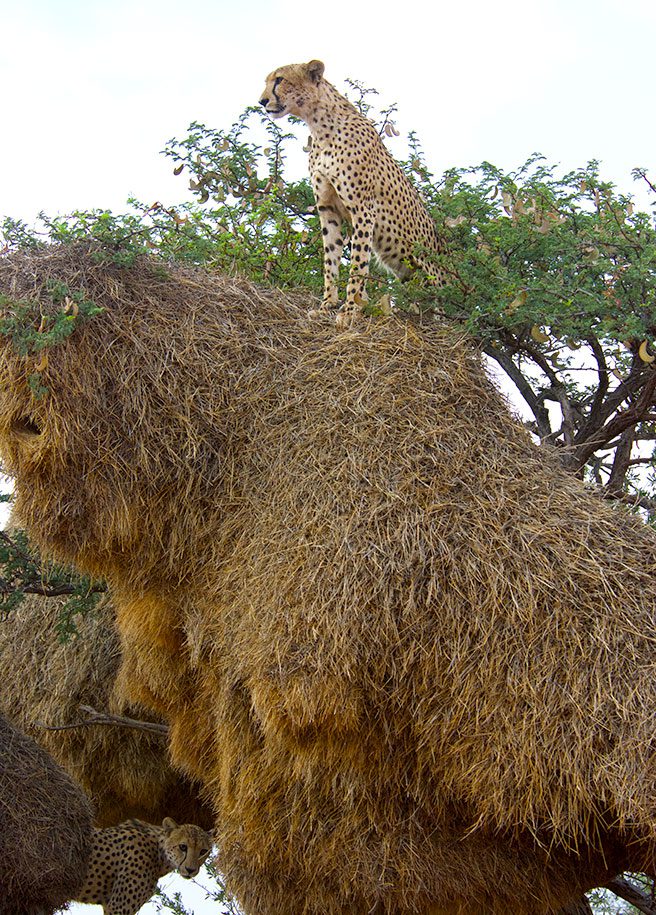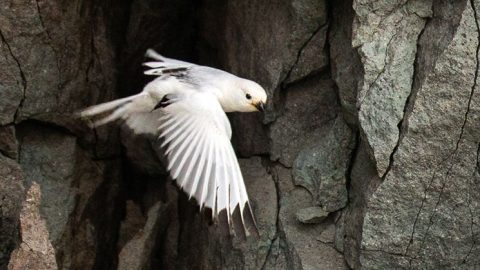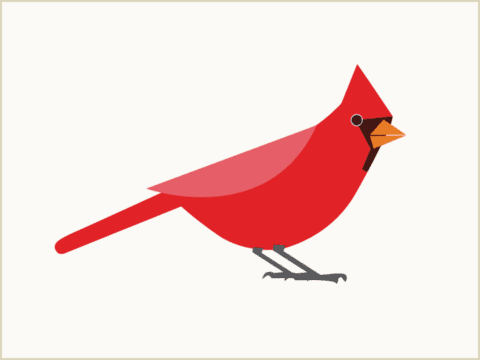In Africa, Sociable Weavers Build a Nest of Many Uses
By Hugh Powell
March 31, 2019
From the Spring 2019 issue of Living Bird magazine. Subscribe now.
In Africa’s Kalahari Desert, sparrow-sized birds called Sociable Weavers create enormous nesting structures that act like avian apartment complexes, housing weaver families by the hundreds. Scientist Robert Thomson of the University of Cape Town, South Africa, says the weavers are also “ecosystem engineers” because their communal nest colonies support a range of other wildlife.
Over the years, the birds’ droppings enrich the soil with nitrogen, phosphorus, and potassium, resulting in the tree growing more leaves (which giraffes eat) and providing more shade (which antelopes use in the heat of the summer) than trees without weaver nests.
The nests themselves do an amazing job of staying cool in summer and warm in winter, which may be why a half-dozen other bird species vie for unoccupied nest chambers. The interlopers include barbets, tits, lovebirds, finches, and the Pygmy Falcon, which sometimes eats skinks (which themselves are up to 3x more abundant on trees with weaver nests).
Even cheetahs climb into the trees to sprawl over the domed roof of the nest and soak up the sun.
Thomson suggests that the effort and ingenuity that birds put into their nests have value for many other creatures, and ornithologists should pay more attention to them as engineers. Here in North America, the clearest examples are the woodpeckers that provide homes for all manner of bluebirds, swallows, chickadees, flying squirrels—but we should be on the lookout for others.
Thomson presented his research at the 27th International Ornithological Congress, August 2018, in Vancouver. Read more highlights from the conference.

All About Birds
is a free resource
Available for everyone,
funded by donors like you
American Kestrel by Blair Dudeck / Macaulay Library


